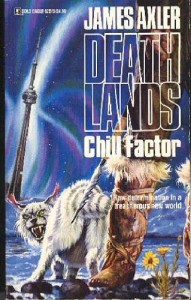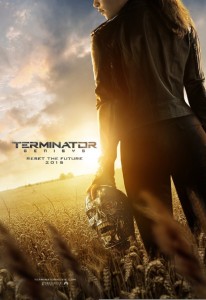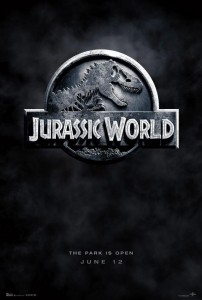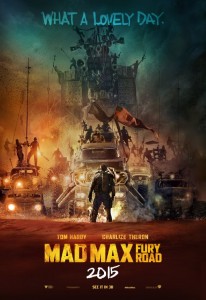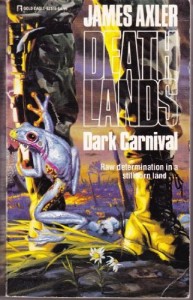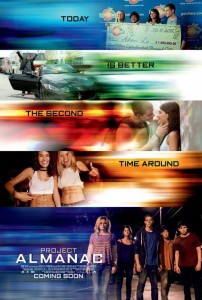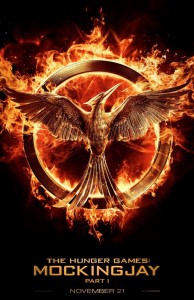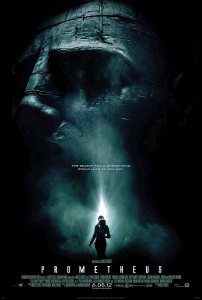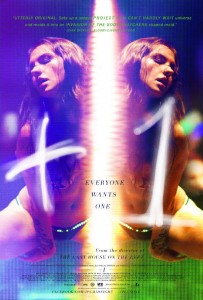 Before telling you that you definitely want to avoid +1[1], I should at least try to explain what happens in it. So, the first layer of the onion is that it’s one of those high school / early college break-up movies where the boy and the girl have some kind of valid or contrived misunderstanding, and then the one who isn’t pissed tries to make up with the one who is at a big, raunchy teen movie house party, while various secondary stories play out and roadblocks keep appearing to prevent the inevitable reconciliation.
Before telling you that you definitely want to avoid +1[1], I should at least try to explain what happens in it. So, the first layer of the onion is that it’s one of those high school / early college break-up movies where the boy and the girl have some kind of valid or contrived misunderstanding, and then the one who isn’t pissed tries to make up with the one who is at a big, raunchy teen movie house party, while various secondary stories play out and roadblocks keep appearing to prevent the inevitable reconciliation.
The complicating factor is some kind of space-spawned electrical disturbance that resets time weirdly. So, like, the first one jumps everything backward about 20 minutes, and you have the people who already lived through those 20 minutes and the people from 20 minutes ago, now both existing at the same time. (Not occupying the same space, because the vast majority of partygoers end up in different locations right before the jump, which is convenient I guess?) Then the same thing happens again, but the backward jump is only like 10 minutes the next time, and so forth. Inexplicably, there are never more than two sets of people, but whatever, go with it. Poorly thought out consequences is not why you want to avoid this movie.
Honestly, the background stories all kind of worked. The nerdy girl’s search for peace, the rowdy best friend’s search for a hot chick to bang, the big group’s reaction to the weird happenings going on around them mostly unnoticed, each of these stories plays out in novel or at least believable ways, which is more than you can say for most teen house party movies. But the main story about the boy trying to reconcile with his wronged ex-girlfriend? It starts off in the exact formulaic way you would expect, with him using found knowledge from the time rewind to get his reconciliation speech just right. And then it gets seriously a whole lot worse, without any kind of ultimate consequence or useful lesson.
Long story short: I want to kick this movie in the nuts. And then I want a time loop to jump back 20 minutes, so I can kick it in nuts again at about 19:30, and then the other me kicks it again immediately afterwards.
[1] Because you should avoid it, I’m not going to be shy about the spoilers. If for some reason you think I’m wrong and you want to see it anyway, probably don’t read this review? Also, make sure you’re good on blood pressure meds.
